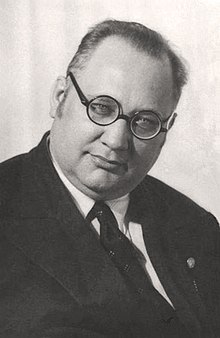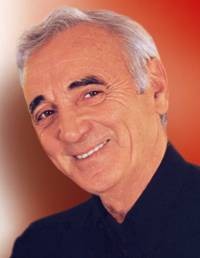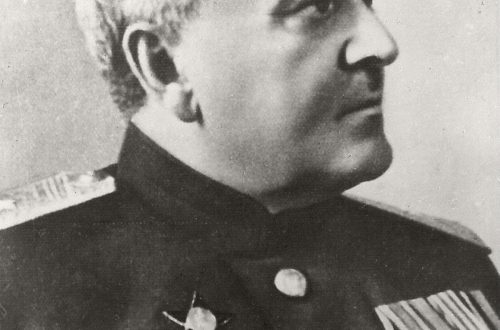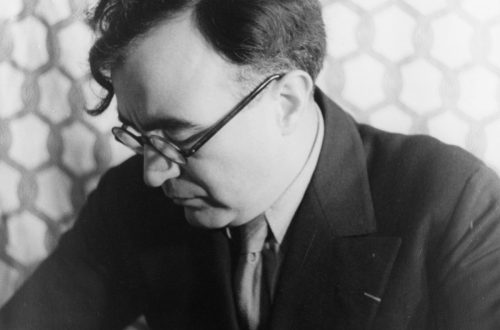
Oles Semyonovych Chishko (Chishko, Oles) |
Contents
Chishko, Oles
Born in 1895 in the village of Dvurechny Kut near Kharkov, in the family of a rural teacher. After graduating from the gymnasium, he entered Kharkov University, where he studied natural sciences, preparing to become an agronomist. Simultaneously with studies at the university, he took singing lessons from F. Bugomelli and L. V. Kich. In 1924 he graduated (externally) from the Kharkov Music and Drama Institute, in 1937 from the Leningrad Conservatory, where in 1931-34 he studied with P. B. Ryazanov (composition), Yu. N. Tyulin (harmony), Kh. S. Kushnarev (polyphony ). In 1926-31 he sang at the Kharkov, Kiev, Odessa Opera and Ballet Theatres, in 1931-48 (with a break in 1940-44) at the Leningrad Maly Opera Theatre, and was also a soloist with the Leningrad Philharmonic. High professionalism and original talent distinguished the performing culture of Chishko the singer. He created vivid images in the operas Taras Bulba by Lysenko (Kobzar), The Rupture by Femelidi (Godun), Zakhar Berkut by Lyatoshinsky (Maxim Berkut), War and Peace (Pierre Bezukhov), Battleship Potemkin (Matyushenko ). Performed as a concert singer. Organizer and first artistic director (1939-40) of the Song and Dance Ensemble of the Baltic Fleet.
Chishko’s first composing experiments belong to the vocal genre. He writes songs and romances based on the texts of poems by the great Ukrainian poet T. G. Shevchenko (1916), and later, after the Great October Socialist Revolution, he composes songs and vocal ensembles based on the words of Soviet poets A. Zharov, M. Golodny and others. In 1930 Chishko created his first opera “Apple Captivity” (“Apple Tree Captivity”). Its plot is based on one of the episodes of the civil war in Ukraine. This opera was staged in musical theaters in Kyiv, Kharkov, Odessa, and Tashkent.
The most significant work of Oles Chishko is one of the first Soviet operas on a revolutionary theme that received wide recognition, the opera Battleship Potemkin (1937), staged by the Opera and Ballet Theater. S. M. Kirov in Leningrad, the Bolshoi Theater of the USSR in Moscow and a number of opera houses in the country.
The work of Chishko the composer is associated with the development of heroic and revolutionary themes in the Soviet musical art of the 20-30s. He paid much attention to musical-stage and vocal genres. In 1944-45 and 1948-65 he taught at the Leningrad Conservatory (composition class; since 1957 associate professor). Author of the book Singing Voice and Its Properties (1966).
Compositions:
operas – Judith (libre Ch., 1923), Apple captivity (Yablunevy full, libre Ch., based on the play by I. Dniprovsky, 1931, Odessa Opera and Ballet Theater), Battleship “Potemkin” (1937, Leningrad t- opera and ballet, 2nd edition 1955), Daughter of the Caspian Sea (1942), Mahmud Torabi (1944, Uzbek opera and ballet school), Lesya and Danila (1958), Rivals (1964), Irkutsk history (not finished); for soloists, choir and orchestra — cantata There is such a part (1957), wok.-symphony. suites: Guardsmen (1942), Flag over the village council (with orchestra folk instruments, 1948), Miners (1955); for orchestra – Steppe Overture (1930), Ukrainian Suite (1944); for orchestra of folk instruments – Dance suite (1933), 6 pieces (1939-45), 2 Kazakh. songs for kazakh. orc. nar. instruments (1942, 1944); string Quartet (1941); choirs, romances (c. 50) and songs on the next. A. S. Pushkin, M. Yu. Lermontov, T. G. Shevchenko and others; processing Ukrainian, Russian, Kazakh, Uzb. pine song (read 160); music k performance drama. t-ra.





